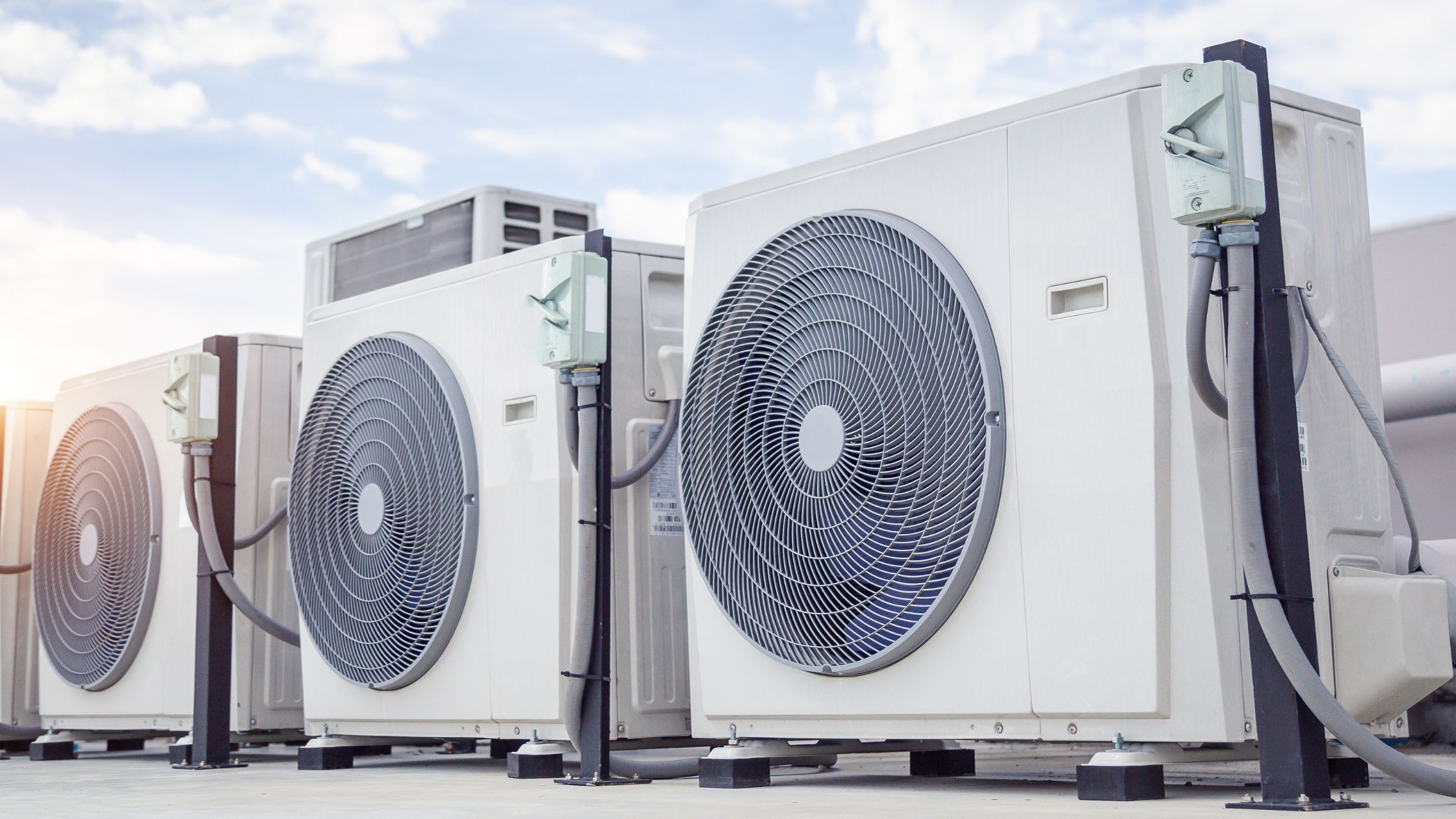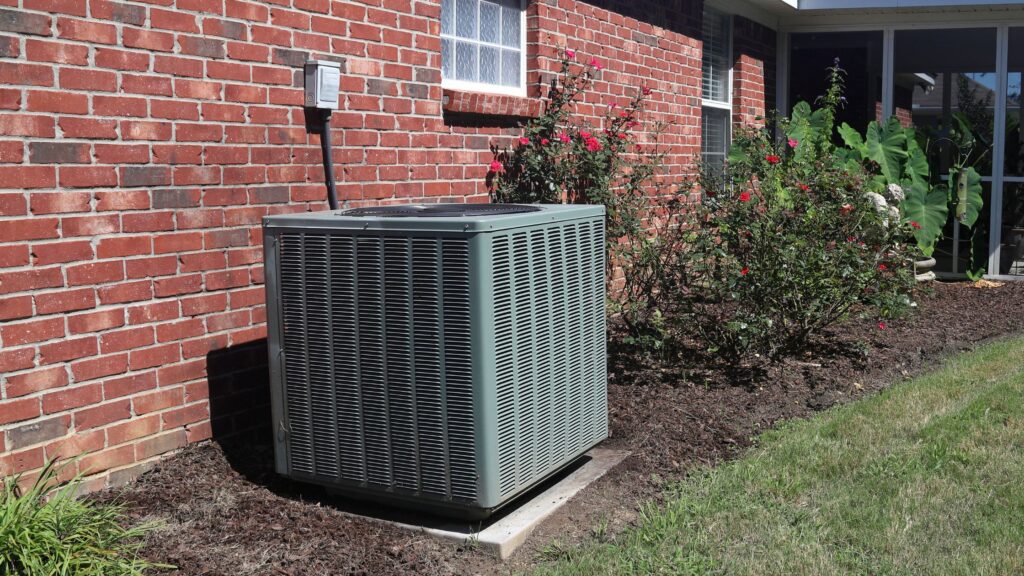Quality HVAC Replacement in Phoenix

Living in Phoenix means facing some of the most intense heat in the country—where summer temperatures regularly soar above 110°F. In this climate, a reliable HVAC system isn’t just a luxury; it’s a necessity for comfort, safety, and quality of life. But what happens when your aging system starts to struggle, sending your energy bills through the roof while failing to keep your home cool?
If your HVAC system is no longer performing efficiently or can’t keep up with the demand, it may be time to consider a full replacement. Replacing your old unit with a high-efficiency system can dramatically improve your home’s comfort while reducing energy consumption and long-term costs.
In this blog, we’ll explore why HVAC replacement in Phoenix is a smart investment for homeowners, how it boosts energy efficiency and indoor comfort, and what to look for when choosing a reliable HVAC contractor in the Valley.

Why HVAC Replacement in Phoenix Is Often Better Than Repair
When your HVAC system starts acting up, the first instinct is usually to call for a repair. But while minor fixes can extend your system’s life, there comes a point when constant repairs become more expensive—and more frustrating—than simply replacing the unit.
1. Age Matters
Most HVAC systems have a lifespan of 10 to 15 years. If yours is approaching or beyond that range, even well-maintained units can start losing efficiency and reliability. Older systems were also built with less efficient technology and may use outdated refrigerants like R-22, which are being phased out.
2. Frequent and Costly Repairs
If you find yourself calling your HVAC technician multiple times a year, those repair bills can quickly add up. A general rule of thumb: if the cost of repairs is more than 50% of the cost of a new unit, it’s time to consider replacement.
3. Rising Utility Bills
An inefficient system works harder to maintain your desired temperature, especially during Phoenix’s brutal summer months. That extra strain translates into higher energy bills. A new, energy-efficient system can significantly reduce monthly costs.
4. Uneven Cooling or Poor Airflow
Do you have hot spots in certain rooms or feel like your system just can’t keep up anymore? These are signs your system is no longer performing as it should. A new HVAC system can restore even cooling throughout your home and eliminate frustrating temperature swings.
5. Increased Home Value and Peace of Mind
Upgrading your HVAC system adds value to your home—an important factor if you plan to sell in the future. It also gives you peace of mind knowing your family will stay comfortable year-round without the stress of unexpected breakdowns.
The Energy Efficiency Benefits of a New HVAC System
When it comes to replacing your HVAC system, one of the biggest advantages is improved energy efficiency—a game-changer in Phoenix, where ACs work overtime for most of the year. Today’s systems are not only more powerful but are designed to do more with less energy.
1. Higher SEER Ratings, Greater Savings
Modern HVAC systems come with Seasonal Energy Efficiency Ratio (SEER) ratings that indicate how efficiently they operate. The higher the SEER, the lower your energy consumption. Many older units operate at SEER ratings of 10 or less, while new models offer ratings of 14–20+—which can translate into up to 40% energy savings.
2. Advanced Technologies That Work Smarter
Newer HVAC systems include features like:
- Variable-speed compressors and blowers that adjust output based on your home’s real-time needs
- Zoning systems for targeted temperature control
- Smart thermostats that learn your habits and adjust for maximum comfort and efficiency
These upgrades reduce energy waste and keep your home comfortable without constantly cycling on and off.
3. Lower Environmental Impact
Energy-efficient HVAC systems are better for the planet. They consume less electricity and often use eco-friendly refrigerants with lower global warming potential. By upgrading your system, you’re making a responsible choice that aligns with growing sustainability efforts in Arizona and beyond.
4. Reduced Strain on the Electrical Grid
During peak summer months in Phoenix, energy demand spikes. A high-efficiency HVAC system helps ease your household’s strain on the grid—especially important in avoiding outages and reducing your carbon footprint.
Improved Comfort and Indoor Air Quality
Energy savings are a big win, but replacing your HVAC system also brings noticeable improvements in daily comfort and the quality of the air your family breathes. In Phoenix—where homes are sealed tight to keep the heat out—air quality and consistent cooling become even more essential.
1. Consistent Temperature Control
Older systems often struggle to keep up with Phoenix’s extreme temperatures, leading to hot spots and uneven cooling throughout the home. New HVAC units are designed to deliver steady, reliable airflow, ensuring each room maintains a comfortable temperature—even during triple-digit heat waves.
2. Better Humidity Management
While Phoenix is known for dry heat, monsoon season can bring unexpected humidity. Modern HVAC systems manage moisture levels more effectively, preventing that sticky, muggy feeling indoors and reducing the risk of mold growth in ductwork or damp areas.
3. Cleaner, Healthier Air
New systems often come with advanced filtration and air purification options that remove:
- Dust and allergens
- Pet dander
- Mold spores
- VOCs (volatile organic compounds)
This is especially important for households with children, seniors, or anyone with asthma or allergies.
4. Quieter Operation
Comfort isn’t just about temperature—it’s also about peace and quiet. Today’s systems run significantly quieter than older models, with noise-dampening technology and variable-speed fans that hum in the background rather than roar through your vents.
Environmental Impact and Sustainability
In today’s climate-conscious world, upgrading your HVAC system isn’t just a smart financial decision—it’s also a responsible environmental choice. For Phoenix residents concerned about sustainability, a high-efficiency HVAC system offers meaningful benefits that go beyond your monthly energy bill.
1. Reduced Carbon Footprint
Older HVAC systems tend to consume significantly more electricity to maintain indoor comfort, especially during Phoenix’s blistering summer months. By switching to a modern, energy-efficient system, you automatically reduce your home’s carbon emissions—contributing to cleaner air and a more sustainable future.
2. Use of Eco-Friendly Refrigerants
Many outdated systems still rely on refrigerants like R-22, which are being phased out due to their harmful environmental impact. Today’s systems use low-GWP (global warming potential) refrigerants, such as R-410A or the newer R-32 and R-454B, which meet stricter environmental standards while maintaining high performance.
3. ENERGY STAR® Certified Systems
Replacing your HVAC system with an ENERGY STAR® certified model ensures that it meets or exceeds federal efficiency guidelines. These systems are independently tested to reduce energy usage without sacrificing comfort, and they may even qualify you for rebates or tax credits.
4. Supporting Local Sustainability Goals
Arizona continues to face climate challenges like drought and rising temperatures. By upgrading your HVAC system, you’re supporting broader sustainability efforts within the Phoenix metro area—conserving energy and promoting smarter resource use at the local level.
What to Look for in a Quality HVAC Replacement Service in Phoenix
Choosing the right contractor is just as important as selecting the right HVAC system. A professional, experienced HVAC company can make the difference between a smooth installation and years of recurring issues. Here’s what Phoenix homeowners should look for when hiring a trusted replacement service:
1. Proper Licensing and Certifications
Always work with a company that is licensed, bonded, and insured in Arizona. Look for technicians who are NATE-certified (North American Technician Excellence)—a mark of advanced training and expertise in HVAC systems.
2. Experience with Phoenix’s Climate
Installing HVAC in the Valley isn’t one-size-fits-all. You need a contractor familiar with Phoenix’s intense heat, dust levels, and monsoon humidity. Local experience ensures your system is properly sized, sealed, and designed for maximum efficiency in desert conditions.
3. Transparent Pricing and Estimates
Reputable HVAC companies provide clear, written estimates with no hidden fees. They’ll walk you through the costs of equipment, installation, and any necessary modifications. Be cautious of vague quotes or unusually low prices—they often lead to shortcuts or poor service.
4. In-Home Energy Assessments
A quality contractor should offer a thorough energy audit or in-home assessment before recommending a system. This ensures the right sizing, airflow balancing, and system match for your home’s specific needs.
5. Solid Warranties and Maintenance Options
A good HVAC company stands behind their work with labor warranties and manufacturer-backed equipment warranties. Look for providers who also offer routine maintenance plans to keep your system performing at its best long after installation.
6. Verified Reviews and Testimonials
Check platforms like Google, Yelp, and the Better Business Bureau for verified customer reviews. Consistent positive feedback and high ratings are strong indicators of reliability and service quality.
Rebates, Tax Credits, and Financing Options
Investing in a new HVAC system not only improves your home’s comfort—it can also unlock significant financial incentives. Here are the key opportunities Phoenix homeowners should explore:
1. Local and Utility Rebates
Many Arizona utility companies—including SRP (Salt River Project), APS (Arizona Public Service), and Tucson Electric Power—offer rebates for high-efficiency HVAC systems. Rebates can range from $100 up to $500+, depending on the system’s SEER rating and efficiency. Always check current offerings through your provider’s website or generator.
2. Federal Tax Credits
The federal government occasionally offers tax credits for energy-efficient home improvements, such as HVAC upgrades. While programs have changed over time, systems that meet strict ENERGY STAR® criteria may qualify for credits. Consult a tax advisor or visit the IRS Energy Credits resource for eligibility details.
3. Manufacturer and Dealer Promotions
HVAC manufacturers and local dealers often run promotional deals—including seasonal discounts, free smart thermostats, or extended warranty packages. These specials can add up to hundreds in additional value, especially during peak replacement seasons.
4. Financing and Payment Plans
Most reputable HVAC companies offer 0% financing for 12 to 24 months or low-interest payment plans to help spread the cost of replacement. This can make even high-efficiency systems more attainable by reducing upfront expenses.
5. Leveraging Long-Term Savings
Don’t forget to factor in the energy savings you’ll enjoy over the life of the system. With reduced monthly utility bills and longer-lasting equipment, the “payback period” is often only 2 to 5 years, making the investment well worth it.
Choosing the Right Size and Type of System for Your Home
An HVAC system is not a one-size-fits-all solution. Selecting the proper size and type of unit is critical to maximizing efficiency, comfort, and long-term performance—especially in Phoenix, where climate extremes can quickly expose an undersized or poorly designed system.
1. Why Proper Sizing Matters
A system that’s too small will struggle to keep up with demand, leading to constant operation, poor cooling, and excessive wear. On the other hand, a system that’s too large will short-cycle—turning on and off too frequently—which wastes energy, wears out components, and causes inconsistent temperatures.
HVAC professionals use Manual J load calculations to determine the ideal system size for your home. This takes into account:
- Square footage
- Ceiling height
- Insulation quality
- Window type and exposure
- Occupant habits and internal heat gain
2. Types of HVAC Systems for Phoenix Homes
Depending on your home’s layout, budget, and cooling needs, several types of systems may be appropriate:
- Central Air Conditioning Systems: Ideal for homes with existing ductwork. Offers whole-house cooling with high SEER ratings.
- Heat Pumps: Efficient for both cooling and heating, especially when paired with Phoenix’s mild winters. Newer models are extremely energy-efficient.
- Ductless Mini-Split Systems: Great for homes without ducts or for room-by-room comfort control. Perfect for additions, garages, or casitas.
- Zoned HVAC Systems: Allows different areas of the home to be cooled or heated independently, which enhances comfort and energy savings.
3. Matching the System to Your Lifestyle
Think about how your family uses different rooms. Do you have unused spaces? Do certain areas get hotter than others? Your HVAC provider can recommend a tailored setup to ensure optimal efficiency, comfort, and control.
The Installation Process: What Homeowners Can Expect
Upgrading your HVAC system is a significant home improvement project—but with the right contractor, it can be a smooth and stress-free experience. Here’s what Phoenix homeowners can typically expect during the HVAC replacement process:
1. Initial Consultation and Home Assessment
The process begins with a professional evaluation of your home. Your HVAC provider will:
- Inspect your current system and ductwork
- Perform load calculations to determine the right system size
- Discuss your comfort goals and budget
- Recommend system options tailored to your needs
This step ensures you choose the most efficient and effective solution for your home’s layout and lifestyle.
2. Transparent Quote and Scheduling
Once you’ve selected a system, your contractor will provide a detailed estimate outlining equipment costs, labor, and any additional services (e.g., duct modifications or thermostat upgrades). Most companies will then schedule installation within a few days, depending on availability.
3. Professional Installation
On installation day, the HVAC team will:
- Safely remove your old system and dispose of it
- Install the new unit, including indoor and outdoor components
- Replace or repair ductwork if needed
- Set up the thermostat and integrate any smart home features
A quality contractor will also take steps to protect your home, such as using drop cloths, wearing shoe covers, and cleaning up after the job is done.
4. System Testing and Walkthrough
After installation, the technician will thoroughly test your system for:
- Correct airflow and refrigerant levels
- Proper thermostat function
- Safe and efficient operation
You’ll receive a full walkthrough of your new system, including maintenance tips, warranty details, and how to use smart features if applicable.
5. Follow-Up and Maintenance Plans
Some companies offer a post-installation checkup after a few weeks to ensure everything is running smoothly. Many also provide preventive maintenance plans to help keep your system in top condition for years to come.
Best HVAC Repair in Tempe – Licensed & Experienced Professionals
Conclusion
When you live in Phoenix, your HVAC system isn’t just part of your home—it’s a lifeline during the scorching summer months. If your current unit is outdated, inefficient, or struggling to keep you comfortable, replacing it with a modern, energy-efficient system is one of the smartest investments you can make.
From lower energy bills and enhanced indoor comfort to better air quality and long-term peace of mind, the benefits of HVAC replacement go far beyond just staying cool. And with local rebates, financing options, and expert installation available, upgrading your system has never been more accessible.
Don’t wait until your system breaks down in the middle of a Phoenix heatwave. Contact our team today to schedule your free in-home consultation and discover how a high-efficiency HVAC replacement can transform your comfort and savings.
Visit TSC Air to learn more, explore financing options, and get started on your path to better indoor living!
